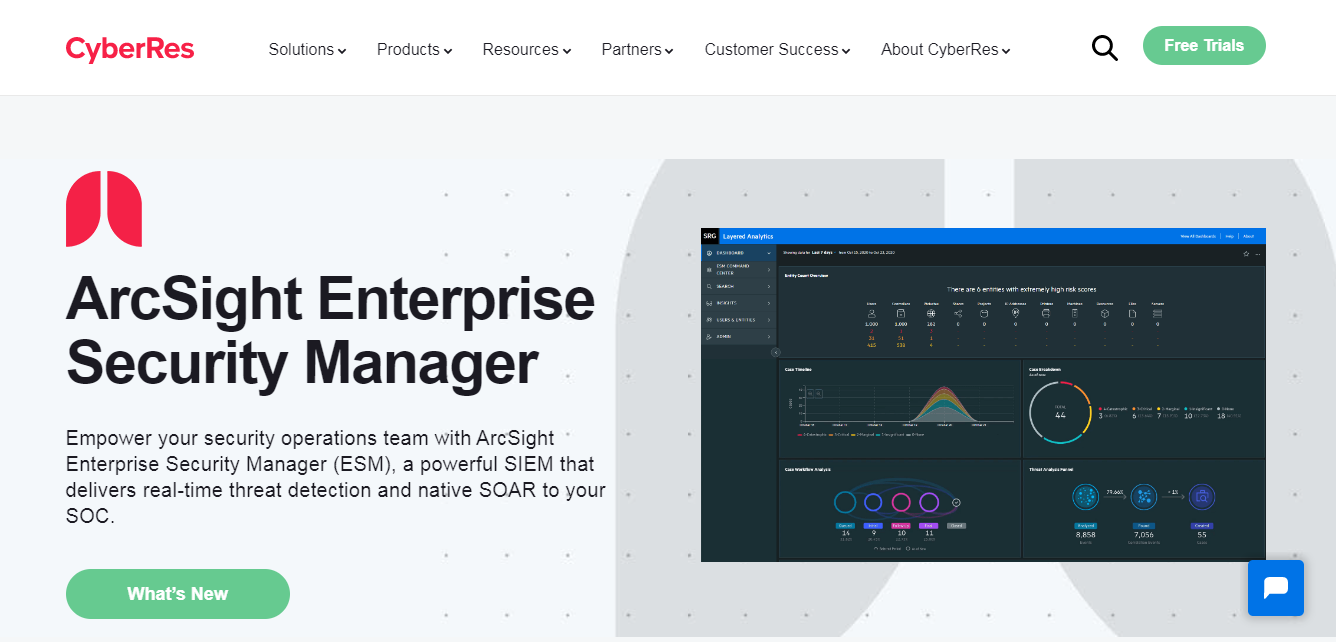Are you a new graduate finding a job in the IT field? An information security analyst can be an excellent option if you want a job with a high salary.
Don’t worry about not knowing what to do to be an information security analyst. Here we will give you the necessary information to support you in choosing the perfect job for your future. Let’s scroll down to read more information!
Job Description
In business, data is essential. Consequently, the Information Security Analyst job has become more valuable to companies of all sizes and in various sectors. So, what is the day-to-day work of these people?
Duties and Responsibilities
An information security analyst is an expert responsible for creating and implementing network security. They help the maintenance of computer networks, and the protection of the organization from cyber-attacks.
Below are detailed duties and responsibilities of an information security analyst:
- Cooperate with customers to discuss computer data access requirements, identify security risks, and recommend programming or new processes.
- Utilize firewalls, data encryption, and other proper security applications and tools to hide and guard digital data transfers.
- Create and deploy plans to protect digital data.
- Review of security procedure violations; training to ensure that breaches do not happen again.
- Supervise and block access to confidential and sensitive data.
- Customize applications and security files as needed to provide specific access, allow for the installation of new software, or to fix issues.
- Conduct audits, tests, and risk assessments to ensure that security measures and data processing are working correctly.
- Protect system security and enhance server and network effectiveness by teaching users and fostering security awareness.
- Decide when to upgrade anti-virus systems and facilitate or carry out the necessary changes by keeping track of recent reports of computer viruses.

Where Does An Information Security Analyst Work?
Information security analysts typically work full-time jobs in offices. Although they can work for almost any kind of business, information security analysts often find work in the following sectors:
- Insurance
- Health care
- Government
- Finance
- Education
They participate in teams inside information technology departments. Analysts in information security might also work in consulting companies.
Education Requirements
Acquiring the appropriate credentials, honing the necessary abilities, or graduating with a relevant degree may help you enter this field.
Degree and Certificate
The minimum needed education for information security analysts is often a bachelor’s degree in IT, cybersecurity, or a related field. Some security analysts hold degrees in areas like math or engineering.
Most bachelor’s degrees require four years of dedicated study to finish. Some businesses prefer candidates with a master’s degree in information systems or a similar discipline.
It often requires two years of full-time study to earn a master’s degree. Cybersecurity boot camps offer comprehensive, career-relevant coaching in a short amount of time.
Some people undergo a cybersecurity boot camp in addition to receiving one or more academic degrees to acquire essential, in-demand skills.
Recommended Online Courses
The top beginner-level online cybersecurity courses are listed below:
1. Introduction to Information Security
This free CISSP course gives IT experts all the in-depth knowledge they need to complete the CISSP certification test.
2. Introduction to Cyber Security
The Free Cyber Security Basics Course is suitable for beginners.
It gives them a basic understanding of the current cybersecurity landscape and introduces them to essential tools for evaluating and managing security measures in data processing systems.
After enrolling in this course, you can conduct business impact analyses and disaster recovery checking.
3. Ethical Hacking for Beginners
You can gain knowledge of ethical hacking ideals by taking free online courses on the subject. People have created the Ethical Hacking beginner’s program to give students the knowledge and capabilities to defeat opponents from both a tactical and theoretical perspective.
Essential Skills
Information security analysts have high technical and security knowledge. They frequently use a blend of soft and hard skills in their work. As an information security analyst, you should focus on developing the following skills:
Hard Skills
1. Analytical skills
Analytical abilities involve evaluating data and using critical thought. Observing computer networks and looking for security risks is one of the regular duties of information security analysts. Therefore having strong analytical abilities is necessary to look into and address dangers.
2. Recognizing security risks
You can spot and react to threats to your firm’s computer network by being aware of the various information security dangers and attack types.
You can advance your security knowledge and abilities by joining information security programs or earning certificates.
3. Networking and information technology
An in-depth knowledge of information technology, including computer networking, is a must-have for infosec analysts. Information security analysts must have a solid understanding of network protocols since security risks frequently target computer networks, a collection of interconnected things.
Information security analysts might also benefit from staying current on technological news. They should spend more effort studying security and information technology to apply the most recent techniques to guard their companies information.

Soft Skills
1. Problem-solving
Infosec analysts frequently have to act quickly after seeing a security problem to choose the best action without losing their organization’s data.
They can adopt new strategies to prevent issues and employ problem-solving techniques to fix problems in their company’s computer systems.
2. Communication
Communication skills can assist information security analysts in clearly describing security issues and processes to other information technology experts and other people not having experience in technology.
Infosec analysts may have to record security issues or threats after they happen so their firm can file a lawsuit.
Incident reports must be concise, well-written, and simple to read. It implies that information security analysts can benefit from strong written communication abilities, mainly writing essays.
Essential Tools

Information security analysts need to stay updated on technology to keep one step ahead of attackers. It includes software tools that aid in attack preparation, mitigation, and recovery. Below are some essential tools for infosec analysts:
- Event Management & Security Information
Information security analysts can monitor their network and detect assaults or possible attacks in real-time thanks to tools like ArcSight.
- Disassemblers
Information security experts can use these tools, such as IDA PRO, to reverse-engineer malware to ascertain how serious of a threat it is.
- Security Analytics
It’s essential to evaluate the effectiveness of security solutions. ThreatConnect uses many product integrations to assist in discovering, managing and preventing threats.
- Web Proxies
Analysts can check the safety of web-based applications and websites using tools like Burp, a web proxy.
- Network Traffic Analysis
Programs like Bro assist in keeping track of network incursions and providing analysts with the precise data they require to assess the network’s security.
Job Outlook

Businesses around the world are concerned about information security. Therefore, qualified information security analysts are in high demand, so overall employment chances are good.
Infosec analysts’ employment is expected to increase by 35% between 2021 and 2031, which is far greater than the median development for all jobs, reports the Bureau of Labor Statistics (BLS).
As reported by US News, infosec analyst is rated the fourth-best IT profession in 2019 and far beyond. This reality has occurred due to many enterprises seeking data security solutions.
The income of an infosec analyst is higher than that of any other profession but with limited supply. Analysts in information security are now more crucial than ever. Recently, not enough professionals have the necessary certificates to meet the demand for jobs.
List Of Top Companies Hiring Information Security Analysts
Although many companies are looking for information security analysts, you may not know which companies are suitable for employees. Below is the list of nine organizations hiring Infosec analysts.
You can find information about these companies to choose which is suitable.
- General Dynamics Information Technology
- Wells Fargo
- American Express
- Northrop Grumman
- UPS
- Target
- Citi
- Bank of America
- US Army
Salary
An Information Security Analyst in the United States may expect an average salary of $83,332. Nonetheless, there is usually some movement in this number, ranging from $74,555 to $93,165.
Many important factors, such as level of education, professional qualifications, unique skills, and years of experience, contribute to various salary levels. You may obtain help calculating your ideal salary on several websites.
Advantages and Disadvantages

1. Exceptional job growth
It indicates that there will be a very high need for workers in this industry for a very long time.
2. Excellent earning potential
Information security analysts with appropriate qualifications can anticipate high salaries reaching $100,000 annually.
3. Various job settings
This profession gives workers many work environments, from working from home to working for a major multinational organization.
4. Flexible working hours
Information security analysts have some freedom with their work schedules, especially if they are self-employed.
5. Satisfactory work
Identifying and addressing issues that could have led to the loss or compromise of sensitive data is exciting.
6. Benefits program
Information security analysts frequently have an excellent benefits package when working full-time for a company. This package includes health insurance, paid time off for illness, paid vacation, bonuses, and matching retirement.
7. Technologies and trends change rapidly
This IT industry expects its employees to continuously stay informed about the most recent trends, advancements, and skill requirements of the field and is frequently fast to drop those who don’t stay current.
Employees must develop the practice of keeping updated on the most recent difficulties facing the sector to remain competitive.
8. A severe risk of burnout exists
Although most individuals can work whenever and wherever they like, information security analysts frequently experience high levels of burnout.
FAQs
How to become an Information Security Analyst?
The first step should be to complete a bachelor’s degree. Then, the next step will be to acquire work experience.
Obtaining certifications and training will also assist you so much in becoming an information security analyst.
Is a job in information security valuable?
Yes, it is. Information security experts assist in safeguarding essential infrastructure, daily consumer privacy, and companies and enterprises.
This job is ideal if you’ve always desired a reputable and meaningful career.
Do information security analysts need to know how to code?
Although specific careers in the cybersecurity industry may need coding experience, many entry-level ones do not.
However, knowing how to code might be crucial to your success if you’re a cybersecurity expert aiming for a mid-level or senior-level position.
Is it hard to work as an information security analyst?
It is not tricky. It is one of the few sectors in the computer world that don’t demand a solid technical background, despite the possibility of challenging ideas like cryptography or fields that retail more technical understanding.
How are cyber security and IT security different?
If you work in information security, your primary concern is preventing unauthorized access to your organization’s data.
If you work in cybersecurity, your main issue is preventing unauthorized electronic access to your firm’s sensitive information.
Is coding more difficult than cyber security?
Cybersecurity involves less programming but needs a better understanding of networking, system management, operating systems, and fundamental security. As a result, cybersecurity demands a broader range of skills than coding.
Is security analysis stressful?
Yes, it is. Amazingly, 73 % of security professionals polled by the Ponemon Institute claim that an increased workload is causing burnout.
As reported by the same survey, Information Security Analysts often suffer from depression for many reasons.
Is it possible to work as a security analyst without a degree?
Yes, it is. Many firms do not need a college degree from their information security analysts. You can obtain various certificates in place of a degree to improve your abilities as a cybersecurity analyst and strengthen your resume.
Is an information security analyst cybersecurity?
Yes, it is. BLS reports that cyber security analysts plan and implement security to guard a company’s systems and networks. They constantly monitor threats and their firm’s networks for security breaches.
What does an information security analyst do every day?
An information security analyst protects data at a corporation from dangerous attacks like DNS tunneling, phishing, and malware. They examine network traffic to find risks or security lapses and fortify the network against upcoming attacks.
Career Advice
Although the information security analyst is a high-demand job, you should consider everything. Don’t start this job if you don’t have any ambition for it.
After ensuring that you truly want to choose this job for your career, you should train yourself. If you are a high school student, provide an excellent result.
When you are at university, try to earn a bachelor’s degree. When you graduate from college, get experience by joining IT groups and creating your project.
Now, you can apply for the position you want. But do not forget to learn every day simply because everything will change daily in this cybersecurity field.
Thank you for reading!
